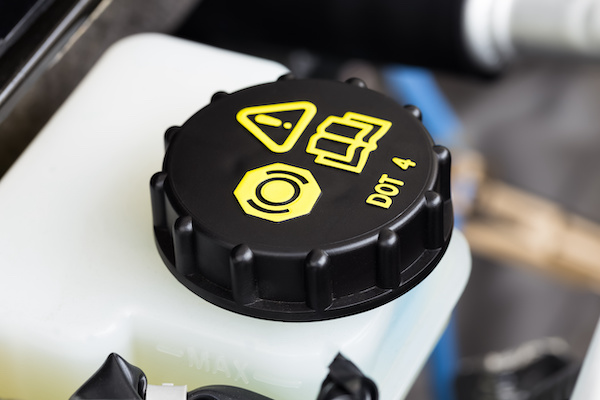
Pressing down on the brake pedal only to have it sink to the floorboard and your vehicle not coming to a complete stop is one of the scariest things that can happen while driving. But this is what can happen if brake fluid levels are too low and you ignore the brake fluid warning light on your dashboard. When the brake fluid level in your vehicle is below what the manufacturer recommends, it can cause air to fill the gaps in your brake lines, which, in turn, causes the brakes to become soft and spongy. The longer someone drives their vehicle with low brake fluid, the more likely they are to be in an accident.
Additional Signs of Low Brake Fluid
A glowing brake fluid warning light and soft, spongy brakes are some of the more obvious signs of low brake fluid, but they are not the only ones. Additional signs can include:
- Grinding or squealing noises - When brake fluid levels get too low, it can damage several critical brake components, including brake pads and rotors. These damaged components will usually make a grinding or squealing sound when you press down on the brakes.
- A burning smell - Along with grinding and squealing noises, damaged brake components, namely brake pads, will produce a distinct burning smell when you press down on the brakes.
- Vehicle pulls to one side or the other - Worn brake pads or master cylinder problems can be a byproduct of low brake fluid levels, and both can cause your vehicle to pull to one side or the other when you press down on the brakes.
All in all, you will notice a significant difference in how your vehicle drives and, more importantly, stops when your brake levels are too low. If your brake fluid warning light is on and you have noticed either of these changes, consider having your vehicle inspected by one of our highly skilled automotive technicians today. We look forward to seeing you at Villa Marina Auto Care.